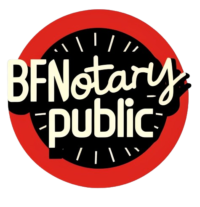A notary public plays a crucial role in real estate closings by ensuring the legality and authenticity of the documents involved.
Their primary responsibility is to act as an impartial witness to the signing of important legal documents.
Notary publics are appointed by the state government and are authorized to administer oaths and affirmations, witness signatures, and certify copies of documents.
By having a notary present during a real estate closing, parties involved can have peace of mind knowing that the transaction is legally binding and valid.
Notary publics are essential in preventing fraud and ensuring the integrity of the real estate closing process.
Preparing for the Real Estate Closing
Before the actual real estate closing takes place, thorough preparation is necessary. One of the crucial steps is to gather and review all the necessary documents that will be involved in the closing process.
These documents may include the purchase agreement, title insurance policy, loan documents, and any other relevant paperwork.
It is important to ensure that all documents are accurate and complete to avoid any delays or complications during the closing.
Additionally, parties involved should communicate with their respective attorneys, real estate agents, and lenders to address any concerns or questions prior to the closing date. Proper preparation is key to a smooth and efficient real estate closing.
Executing Documents with the Notary Public
During the real estate closing, the notary public will play a significant role in executing the necessary documents.
One of the primary documents that will be signed is the deed, which transfers ownership of the property from the seller to the buyer.
The notary public will ensure that all parties involved sign the deed and any other required documents in their presence. They will also verify the identities of the signatories by checking their identification documents.
The notary public will then notarize the documents by affixing their official seal or stamp and signing as the witness. This step is crucial in making the documents legally valid and enforceable.
Reviewing and Notarizing Legal Paperwork
Before the real estate closing, it is important to review all the legal paperwork involved. This includes reviewing the purchase agreement, title insurance policy, loan documents, and any other relevant contracts.
A notary public can assist in reviewing these documents to ensure that they are accurate, complete, and in compliance with the applicable laws and regulations.
They will also verify the identities of the parties involved and confirm that they have the legal capacity to enter into the transaction.
Once the documents are reviewed and deemed satisfactory, the notary public will proceed to notarize them. Notarizing the legal paperwork adds an extra layer of authenticity and validity to the documents.
Ensuring a Smooth Real Estate Closing Process
To ensure a smooth real estate closing process, it is important to follow certain best practices.
Firstly, all parties involved should communicate and collaborate effectively with each other. This includes the buyer, seller, real estate agents, lenders, and attorneys.
Clear and prompt communication can help address any issues or concerns that may arise during the closing process. It is also crucial to be well-prepared and organized, ensuring that all necessary documents are in order.
Lastly, having a reliable and experienced notary public present can help facilitate the closing process and ensure that all legal requirements are met.
By following these steps and best practices, parties involved can navigate with a Notary Public in Real Estate Closings process smoothly and successfully.


Leave a Reply